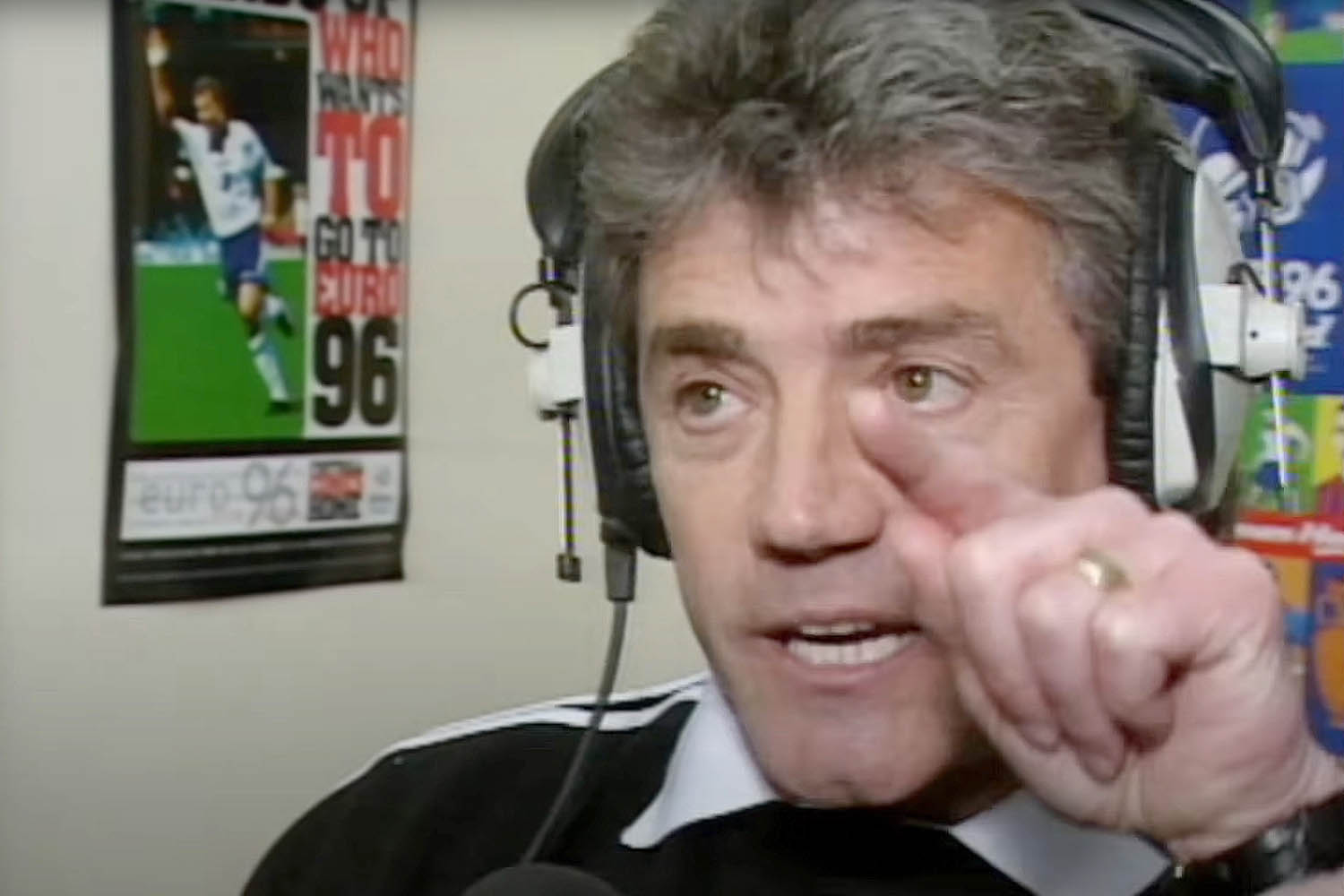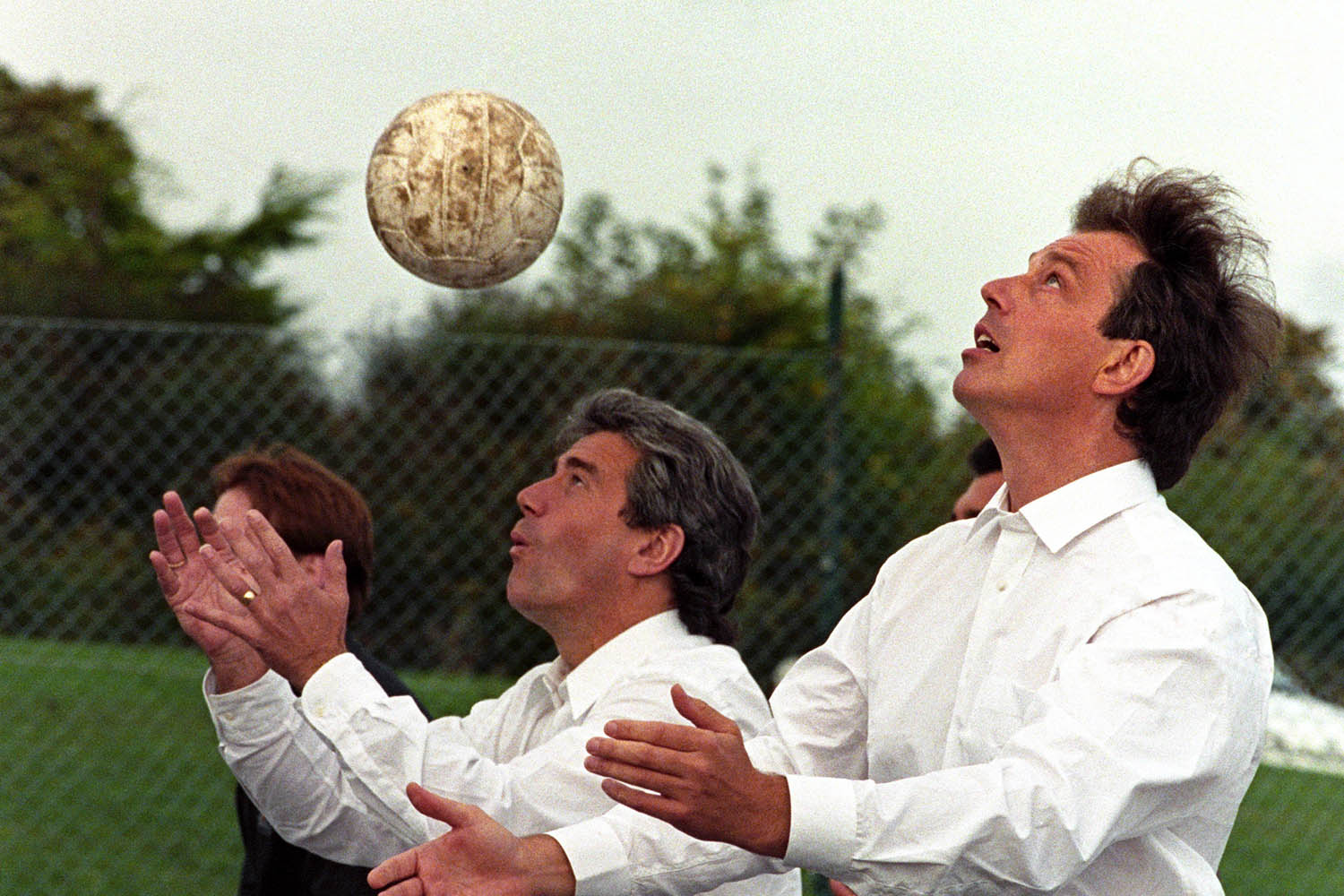Kevin Keegan was the public face of football who was always threatening to disappear into his private life. He was the footballer patronised as a workaholic pragmatist who embarked on a series of romantic adventures, at unfancied clubs Hamburg, Southampton and Newcastle. He was so famous that he was, along with Henry Cooper, the face of Brut aftershave and the man who taught children the Green Cross Code for road safety, but he was also unknowable. Above all, as Anthony Quinn captures in Keegan, his new fascinating book-length portrait, he was strange.
Imagine a biography that includes the details that the subject “lived in a quiet village in Schleswig-Holstein”, arranged to leave his workplace at St James’s Park on his final day in a helicopter, referred to himself regularly in the third person, took an office at Harrods and was beaten up in a layby near Reigate, you might well wonder: who on earth is this guy? Is he a spy? A mercenary? No, he was the best English footballer of his generation.
And he really was the best of his time. Keegan was the star of the late-era Bill Shankly Liverpool side. He was the third English winner of European footballer of the year, after Sir Stanley Matthews and Sir Bobby Charlton, and surpassed them both by winning it twice, in 1978 and 1979. Keegan has a claim to be the best English footballer since Bobby Moore. But, in pub conversations about England’s finest, how often would he rate a mention? Gascoigne, Robson, Rooney, Gerrard, maybe, Beckham, certainly. But Keegan? Even in Liverpool, Kenny Dalglish is usually regaled as the better footballer, let alone as the greater man. As a player of the highest class, Keegan seems to have been forgotten.
Quinn helps to explain exactly why that might be so. Keegan’s tempestuous ride as a manager hardly helped. He was in fact a success as a manager who is remembered as a failure. After joining Newcastle in 1992, he took them from the bottom half of the First Division (what is now the Championship) to within a few points of winning the Premier League in the 1995-96 season. Those of us who dislike eventual champions Manchester United – which is to say, people who like football – would have loved it if he had been able to go one step further. But Newcastle have never come as close since and may never do so again. Keegan had an inglorious time as England manager that ended in his abrupt resignation in the final match played at the old Wembley stadium in October 2000, but he was hardly the only inglorious England manager of the time.

Keegan during his infamous rant in 1996
But if there is a good case that, as a footballer, Keegan did not get his due, there is another sense in which he absolutely did. He was a whiz with money. From the moment he talked Shankly up from £45 to £50 a week to join Liverpool from Scunthorpe United in 1971, Keegan negotiated his own contracts and gained a reputation in the game for being unusually money-conscious.
At Hamburg, the other players shunned him because he was so well paid, and when he joined Newcastle, Keegan had to keep it secret from the players that he received 15% of the gate receipts for any crowd above 15,000. Before there were agents and modern hedge fund football, Keegan could already brand it like Beckham.
In these plutocratic days, when players are happy to spend years in lucrative obscurity in Saudi Arabia, a footballer in the money is the norm. Keegan came from a poor mining family in South Yorkshire, and he made the most of being socially mobile. He was a financial pioneer – and he wasn’t loved for it.
But perhaps the key to the diminishing of Keegan is the football. He was, at the time and since, regarded as a manufactured player – a bit of a try-hard. He was an artisan, not an artist like Johan Cruyff or Michel Platini, or Dalglish, his great successor at Liverpool.
The common view is that Keegan’s play was muscular rather than graceful; perspiration over inspiration. But this is to diminish him much too far. Keegan was more than a shrewd man and an enterprising footballer. He was the Ballon d’Or. He was a superstar.
Read an extract from Anthony Quinn’s biography Keegan: The Man Who Was King (Faber & Faber, £14.99). Order a copy at observershop.co.uk for £12.74. Delivery charges may apply
Newsletters
Choose the newsletters you want to receive
View more
For information about how The Observer protects your data, read our Privacy Policy

